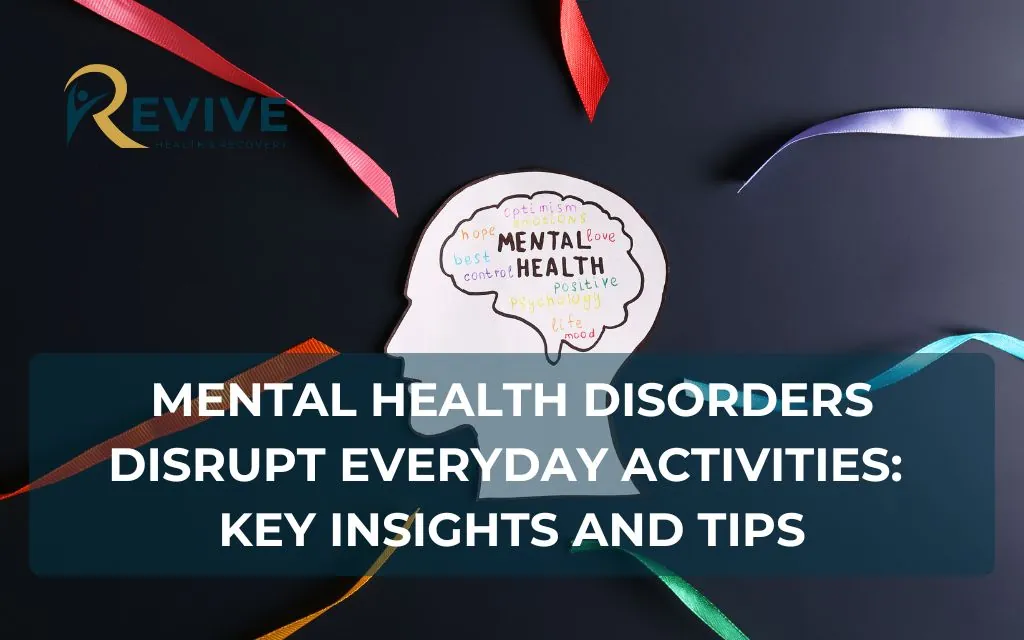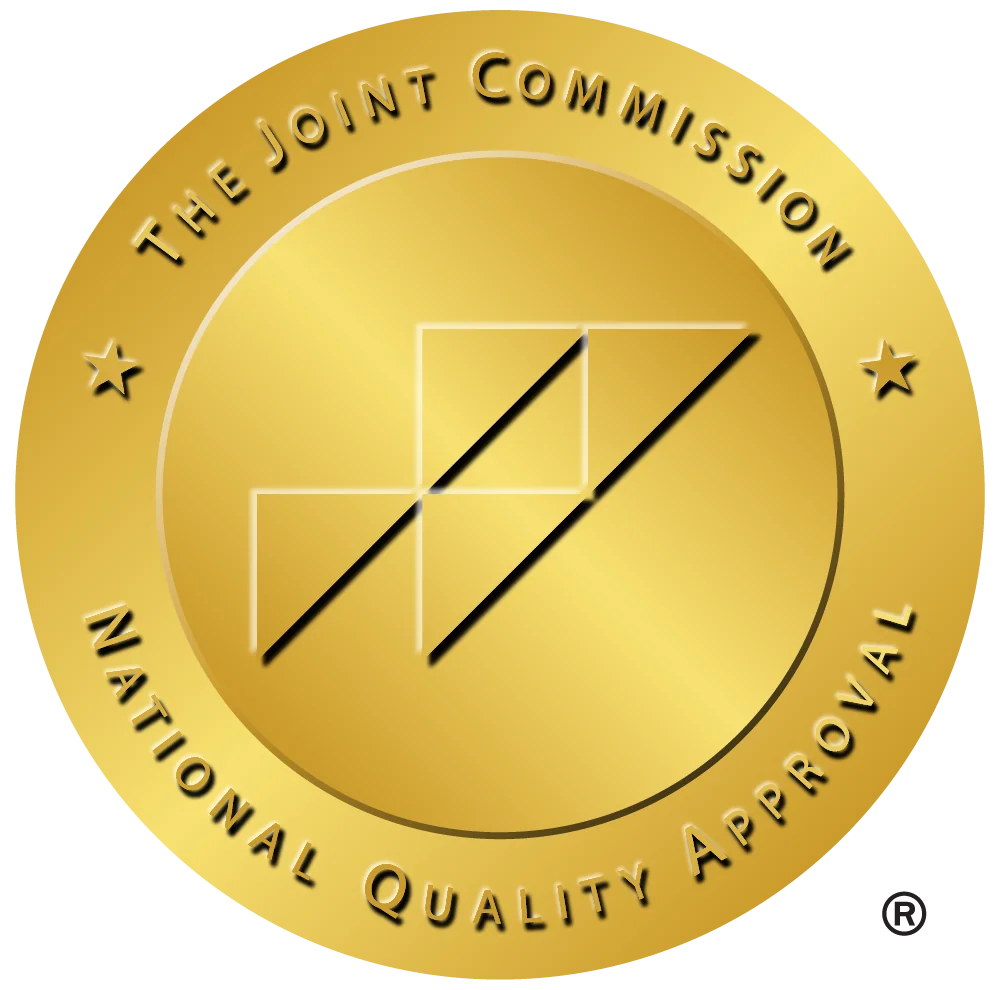Have you ever found yourself struggling to complete even the most basic daily tasks? Maybe you’ve noticed changes in your sleep patterns, appetite, or motivation levels? These could be signs that mental health disorders disrupt everyday activities in ways you might not immediately recognize. As mental health professionals serving the Denver community, we’ve witnessed firsthand how conditions like anxiety and depression can significantly impair daily functioning, creating obstacles in work, relationships, and overall quality of life.
The impact of mental health disorders extends far beyond occasional emotional distress. It can fundamentally alter how you navigate the world around you. In Colorado, where we pride ourselves on active lifestyles and outdoor pursuits, the invisible burden of psychological challenges can feel particularly isolating. Let’s explore how mental health disorders disrupt everyday activities and what you can do to reclaim balance in your life.
Understanding the Scope of Mental Health Disorders in Colorado
Mental health disorders affect a significant portion of our population, impacting mood, behavior, and thought processes. These conditions include anxiety, depression, bipolar disorder, and schizophrenia, among others. What makes these disorders particularly challenging is how they can significantly disrupt a person’s ability to function daily.

The Mental Health Crisis in Denver: Facts and Trends
Colorado’s mental health landscape presents some concerning statistics. Around 29.8% of adults in Colorado reported symptoms of anxiety and/or depression – higher than the national average. More alarmingly, Colorado has slipped dramatically in national mental health rankings, moving from 30th to 46th between 2023 and 2024, indicating a worsening situation.
In Denver specifically, 15% of adults reported having eight or more days of poor mental health in a 30-day period. This prevalence translates to real human suffering and substantial economic impact, with mental health disorders costing the Colorado economy approximately $1.5 billion annually in lost productivity, healthcare costs, and other related expenses.
Nearly 250,000 adults in Colorado suffer from “severe” mental health disorders that significantly disrupt daily life, affecting everything from basic self-care to complex work responsibilities. These disorders don’t just impact the individuals experiencing them – they create ripple effects throughout families, workplaces, and communities.
Why Mental Health Disorders Are on the Rise in Our Area
Several factors contribute to Colorado’s unique mental health challenges. Interestingly, research suggests high altitude may play a role in mental health vulnerability, with studies showing correlations between elevation and higher rates of depression and suicide. This environmental factor isn’t often discussed but may be relevant to understanding our state’s mental health landscape.
Additionally, Denver’s rapidly increasing cost of living creates financial pressure that can exacerbate psychological distress. The contrast between the idealized image of Colorado living and the reality of economic struggles can intensify feelings of inadequacy and anxiety.
Despite Denver voters approving funding for high-quality mental health and addiction care, millions of allocated funds remain unused while services continue to be insufficient, creating a frustrating gap between potential resources and actual care delivery.
The COVID-19 pandemic only worsened these existing challenges, with Colorado seeing a 59% increase in individuals reporting mental health-related stress during and after the pandemic. This dramatic spike overwhelmed an already strained mental health system.

Signs Mental Health Disorders Are Disrupting Your Daily Life
When mental health disorders disrupt everyday activities, the effects can manifest in various aspects of your life. Recognizing these signs early can be crucial for seeking appropriate help.
Disruptions in Work and Academic Life
One of the most common ways mental health disorders disrupt everyday activities is through impacts on professional performance. You might experience:
- Difficulty concentrating on tasks that once came easily
- Decreased productivity despite working longer hours
- Frequent absences or, conversely, “presenteeism” (being physically present but mentally disengaged)
- Challenges in maintaining professional relationships
- Missing deadlines or struggling with time management
- Anxiety about work-related communication
These disruptions can jeopardize career advancement, financial stability, and professional identity. In Denver’s competitive job market, these challenges can feel particularly threatening to your livelihood and self-worth.
Symptoms Affecting Family and Social Relationships
Mental health disorders disrupt everyday activities related to personal connections, often in ways that can damage important relationships:
- Withdrawing from social gatherings you previously enjoyed
- Finding it exhausting to engage in conversation
- Increased irritability with loved ones
- Communication difficulties, such as trouble expressing needs
- Avoidance of family responsibilities
- Decreased interest in intimacy or connection
- Conflict arising from misunderstood symptoms
These relationship disruptions can create a painful cycle where isolation exacerbates mental health symptoms, which in turn leads to further isolation. Breaking this cycle often requires professional intervention.
How Anxiety Disrupts Daily Tasks in Denver
Anxiety disorders can make navigating daily life in an urban environment particularly challenging:
- Avoidance of public transportation due to panic symptoms
- Difficulty shopping in crowded areas like Denver’s popular markets
- Excessive worry about safety in urban settings
- Challenges attending community events due to social anxiety
- Inability to enjoy Denver’s outdoor recreational opportunities due to health anxiety
- Difficulty driving or navigating traffic in Denver’s busy streets
These anxiety-related disruptions can significantly limit your engagement with the community and restrict access to resources that could otherwise enhance your quality of life.

The Impact of Depression on Daily Life Habits
Depression is another common way mental health disorders disrupt everyday activities, often in subtle ways before progressing to more obvious impairments.
Recognizing Depression Signs in Your Routine
Depression can manifest through various changes in daily habits:
- Disrupted sleep patterns—either sleeping too much or experiencing insomnia
- Changes in appetite and eating habits
- Neglect of personal hygiene and home environment
- Difficulty making even small decisions
- Loss of interest in previously enjoyable activities
- Physical fatigue that makes basic tasks feel overwhelming
- Reduced motivation for self-care activities
In Colorado, where physical activity and outdoor recreation are culturally emphasized, the inability to engage in these activities due to depression can compound feelings of isolation and disconnection from community identity.
How Depression Affects Community Engagement in Denver
Depression can particularly impact how Denver residents engage with their community:
- Withdrawal from local cultural events and activities
- Limited participation in outdoor recreation despite Colorado’s abundant opportunities
- Decreased volunteering or community involvement
- Feelings of isolation despite Denver’s urban density
- Reduced attendance at neighborhood gatherings or community meetings
- Difficulty connecting with Denver’s vibrant social scenes
This withdrawal can be especially pronounced in Colorado, where social connections often form around outdoor activities and active lifestyles. When mental health disorders disrupt everyday activities related to community engagement, the resulting isolation can further exacerbate symptoms.

Strategies for Managing the Impact of Mental Health Disorders on Daily Life
While professional treatment is often necessary, there are strategies you can employ to better manage how mental health disorders disrupt everyday activities.
Self-Regulation Techniques for Colorado’s Lifestyle
Colorado’s unique environment offers several opportunities for natural mental health support:
- Incorporating mindful outdoor activities, even brief ones, can help regulate emotions
- Utilizing Denver’s parks for grounding exercises and stress management
- Structuring routines to maximize exposure to Colorado’s abundant natural light
- Practicing altitude-appropriate physical activities that boost mood without overexertion
- Using Denver’s natural settings for mindfulness practice and meditation
- Creating morning routines that embrace Colorado’s early sunrises for circadian rhythm support
These strategies leverage Colorado’s unique environmental advantages while addressing the specific challenges our region presents.
Creating a Supportive Environment at Home and Work
Environmental modifications can reduce how severely mental health disorders disrupt everyday activities:
- Open communication with family members about needs and challenges
- Discussing reasonable accommodations with employers under ADA protections
- Creating a dedicated space at home for relaxation and stress management
- Utilizing Denver’s community mental health resources for additional support
- Establishing boundaries that protect your emotional wellbeing
- Connecting with support groups specific to your challenges
These environmental supports can significantly reduce the functional impact of mental health symptoms, allowing you to maintain important life roles despite ongoing challenges.

Treatment Options for Mental Health Disorders in Denver
Professional treatment is often essential when mental health disorders disrupt everyday activities beyond what self-management strategies can address.
Effective Therapies for Restoring Daily Functioning
Several evidence-based approaches can help restore your ability to function in daily life:
- Cognitive Behavioral Therapy (CBT) helps identify and change harmful thought patterns that affect behavior
- Dialectical Behavior Therapy (DBT) teaches emotional regulation and interpersonal effectiveness
- Group therapy provides peer support and shared learning experiences
- Medication management can reduce symptom severity when appropriate
- Skills-based therapies focus on specific functional improvements
- Trauma-informed approaches address underlying experiences that may contribute to current symptoms
These therapeutic approaches can be particularly effective when tailored to address the specific ways mental health disorders disrupt everyday activities in your unique situation.
When and How to Seek Professional Help in Denver
Knowing when and how to access care is crucial:
- Seek help when symptoms persist for more than two weeks
- Consider professional support when self-management isn’t sufficient
- Utilize Colorado’s Behavioral Health Administration (BHA) resources
- Understand insurance coverage options for mental health in Colorado
- Research providers who specialize in your specific challenges
- Consider the benefits of comprehensive centers that address multiple needs
Denver residents have access to Colorado’s specialized Behavioral Health Administration, one of the few state agencies specifically created to coordinate mental health services. This resource can help navigate the sometimes complex process of finding appropriate care.

How Revive Health Recovery Transforms Patients’ Daily Lives
At Revive Health Recovery, we understand intimately how mental health disorders disrupt everyday activities and have developed specialized approaches to address these challenges.
Holistic Approach to Treating Mental Health Disorders
Our treatment philosophy focuses on comprehensive healing:
- Personalized treatment programs based on thorough assessment of how symptoms impact your unique daily life
- Integrative therapies addressing both mind and body
- Specialized approaches for dual diagnosis (co-occurring mental health and substance use disorders)
- Culturally responsive care that considers Denver’s diverse communities
- Trauma-informed practices that recognize the connection between past experiences and current functioning
- Collaborative treatment planning that respects your goals and values
This holistic approach addresses the complete person rather than focusing solely on symptom reduction.
Specialized Programs for Restoring Daily Functioning
Revive Health Recovery offers targeted programs designed to restore functional abilities:
- Intensive outpatient programs (IOP) that provide structured support while allowing you to maintain work and family commitments
- Professional counseling specifically addressing work-related challenges
- Group therapy targeting essential life skills and social functioning
- Family therapy to repair relationship disruptions
- Skill development for emotional regulation in daily situations
- Practical support for managing daily responsibilities during recovery
These specialized programs directly address the ways mental health disorders disrupt everyday activities, with measurable improvements in functional outcomes.
Testimonials from Denver Residents Who Found Balance
Our patients have experienced significant improvements in daily functioning:
“Before treatment at Revive, my anxiety made it impossible to use public transportation or shop in crowded stores. Now, I can navigate Denver confidently and participate in community events I would have avoided before.” – Former patient, 34
“Depression had left me unable to maintain my home or engage with my family. Through Revive’s program, I’ve regained the energy and motivation to not only handle basic responsibilities but also enjoy activities with my children again.” – Former patient, 42
These real-life stories demonstrate how appropriate treatment can substantially reduce the ways mental health disorders disrupt everyday activities, restoring quality of life and functional abilities.

5 Reasons to Choose Revive Health Recovery for Your Treatment
When seeking help for how mental health disorders disrupt everyday activities, choosing the right provider is crucial. Here’s why Revive Health Recovery stands out:
Local Expertise in Denver-Specific Challenges
Our team understands Denver’s unique context:
- Specialized knowledge of environmental factors unique to Colorado, including altitude effects on mental health
- Deep understanding of community resources available to Denver residents
- Awareness of local stressors affecting mental health, such as housing costs and transportation challenges
- Culturally responsive approaches for Denver’s diverse population
- Connections with complementary services throughout the Denver metro area
This local expertise ensures treatment addresses the specific context in which you live and function.
Highly Qualified Multidisciplinary Team
Our professional staff brings diverse expertise:
- Licensed therapists specializing in various mental health conditions
- Medical professionals trained in mental health assessment and treatment
- Staff with specialized training in trauma-informed care
- Professionals committed to ongoing education and evidence-based practices
- Team members with personal connections to the Denver community
This diverse expertise allows for truly comprehensive care addressing all aspects of how mental health disorders disrupt everyday activities.
Personalized Programs for Individual Needs
We recognize that each person’s experience is unique:
- Comprehensive assessments identifying specific functional impairments
- Customized treatment plans targeting your particular challenges
- Flexibility in treatment intensity based on symptom severity
- Adaptable approaches that evolve as your needs change
- Collaborative goal-setting that prioritizes your most important life areas
This personalization ensures treatment directly addresses the specific ways mental health disorders disrupt everyday activities in your life.
Convenient Location in Southwest Denver
Our accessibility makes maintaining treatment easier:
- Central location at 1427 S Federal Blvd, Denver, CO 80219
- Easy access via public transportation
- Welcoming, discreet environment respecting privacy
- Flexible scheduling options including evening appointments
- Comfortable facilities designed to reduce treatment-related stress
This convenience reduces barriers to consistent care, improving treatment outcomes.
Holistic Approach to Recovery
We address the whole person, not just symptoms:
- Treatment addressing physical, emotional, and social aspects of wellbeing
- Integration of wellness practices tailored to Colorado’s lifestyle
- Focus on building resilience and coping skills for long-term stability
- Recognition of the mind-body connection in recovery
- Support for rebuilding social connections and community engagement
This comprehensive approach ensures lasting improvements in how mental health disorders disrupt everyday activities.
FAQs about Mental Health Disorders Disrupt Everyday Activities
How can I help a loved one whose depression is impacting their daily tasks?
If you notice persistent changes in your energy, mood, sleep, appetite, or ability to concentrate that last more than two weeks and interfere with your normal activities, these may indicate a mental health disorder. For a proper assessment, contact Revive Health Recovery at (303) 268-4655 for a professional evaluation.
What are the early signs that anxiety is affecting my work life?
Early signs include excessive worry about work performance, difficulty concentrating, avoidance of work-related social situations, physical symptoms like headaches during workdays, and procrastination due to perfectionism. Revive Health Recovery offers specialized treatment for anxiety that impacts workplace functioning.
How can I help a loved one whose depression is impacting their daily tasks?
Offer non-judgmental support, help with basic tasks when needed, encourage professional treatment, and avoid criticizing their struggles. For guidance on supporting a loved one, contact Revive Health Recovery for family support resources at (303) 268-4655.
Can mental health disorders cause physical issues that affect daily activities?
Yes, mental health disorders can cause physical symptoms like fatigue, pain, digestive issues, and sleep disturbances that significantly impact daily functioning. Revive Health Recovery’s holistic approach addresses both the physical and psychological aspects of mental health disorders.
How long does it typically take to see improvement in daily functioning after starting treatment?
While everyone’s recovery journey is different, many people begin to notice improvements in specific daily functions within 3-6 weeks of consistent treatment. For a personalized timeline and treatment plan, contact Revive Health Recovery to discuss your specific situation.
Conclusion
When mental health disorders disrupt everyday activities, the impact can feel overwhelming – but recovery is possible with the right support. At Revive Health Recovery, we specialize in helping Denver residents reclaim their daily functioning and rebuild lives affected by mental health challenges.
Our Local Denver’s comprehensive approach addresses not just symptoms but practical life functions, helping you return to the activities that give your life meaning and purpose. We understand Colorado’s unique environment and Denver’s specific challenges, providing contextually relevant care that works for your real life.
Don’t let mental health disorders continue to disrupt your everyday activities when effective, personalized help is available. Take the first step toward recovery today by contacting our compassionate team – we’re available 24/7 to answer your questions and help you begin your journey to restored functioning.
Ready to reclaim your daily life? Contact Revive Health Recovery today.
Address: 1427 S Federal Blvd, Denver, CO 80219
Email: contact@revivehealthrecovery.com
Call Us – Available 24/7: (303) 268-4655







